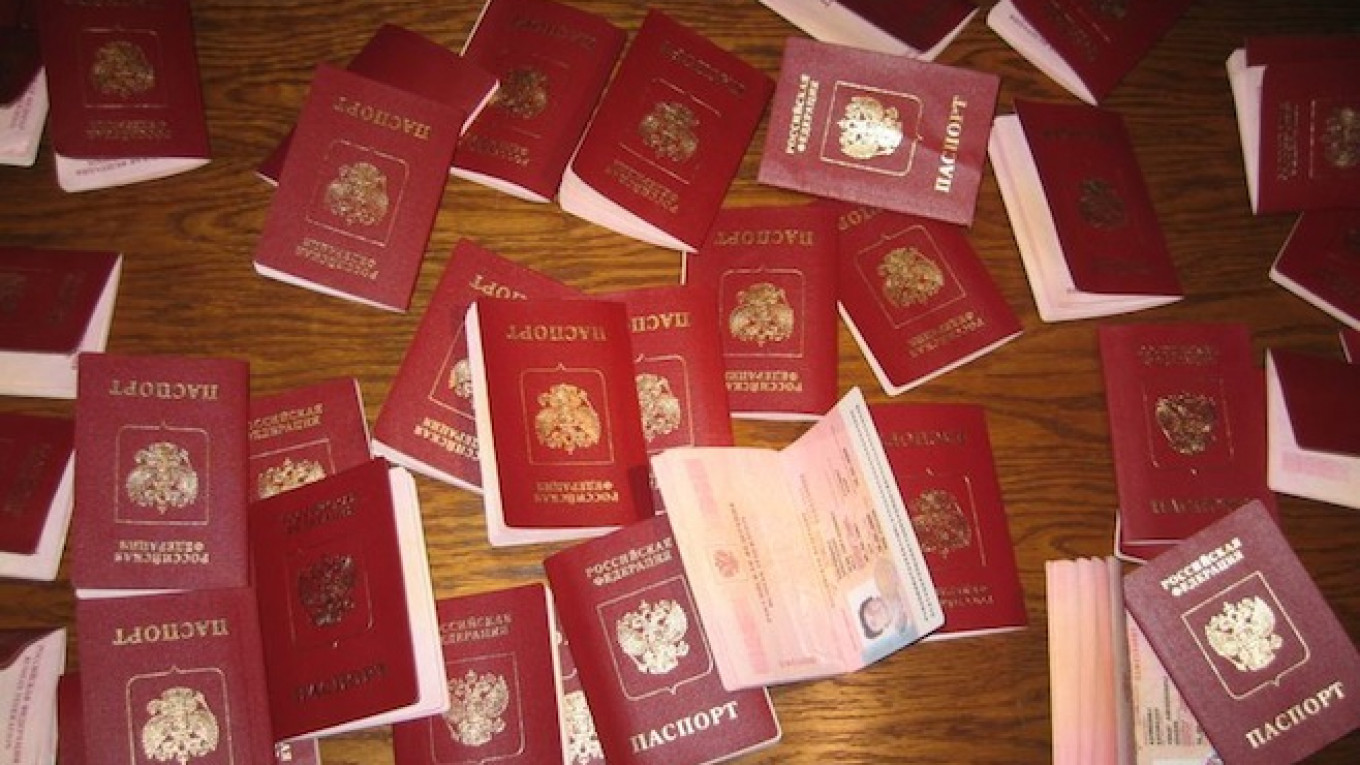Russia has started handing out passports to residents of Crimea, while Ukraine said it would introduce a visa regime with its former Soviet neighbor following Moscow's takeover of the Black Sea peninsula.
Ahead of the introduction of full-fledged visa requirements, Ukraine's government has ordered its Foreign Ministry to develop regulations "within hours" that would require Russian citizens to carry special passports — instead of domestic identification papers — to enter Ukraine, head of the National Security and Defense Council Andriy Parubiy said Wednesday, Interfax reported.
The Foreign Ministry "has been ordered to implement this decision in the shortest time that is technically possible," he said.
Ukraine does not recognize dual citizenship, which means that Crimeans who choose to receive Russian passports may have to apply for a visa to visit their former homeland.
Head of Russia's Federal Migration Service Konstantin Romodanovsky said his agency had opened up offices in Crimea to hand out Russian passports to "everyone who applies," Itar-Tass reported. A batch of passports has already been issued, he added.
Russian issues two types of passports: a domestic one, which is the main identification document for Russians at home, and a separate one for traveling abroad. Applications for foreign-travel documents usually take at least a month to process.
Parubiy said Ukraine had also decided to leave the Moscow-led alliance of former Soviet states, the so-called Commonwealth of Independent States, or CIS, that was formed after the 1991 breakup of the Soviet Union.
Another former Soviet republic, Georgia, has also left the regional alliance, after Moscow supported the separatist drive of two of its territories in 2008.
Ukraine would seek United Nations support for turning Crimea into a demilitarized zone, Parubiy said, Reuters reported.
A Message from The Moscow Times:
Dear readers,
We are facing unprecedented challenges. Russia's Prosecutor General's Office has designated The Moscow Times as an "undesirable" organization, criminalizing our work and putting our staff at risk of prosecution. This follows our earlier unjust labeling as a "foreign agent."
These actions are direct attempts to silence independent journalism in Russia. The authorities claim our work "discredits the decisions of the Russian leadership." We see things differently: we strive to provide accurate, unbiased reporting on Russia.
We, the journalists of The Moscow Times, refuse to be silenced. But to continue our work, we need your help.
Your support, no matter how small, makes a world of difference. If you can, please support us monthly starting from just $2. It's quick to set up, and every contribution makes a significant impact.
By supporting The Moscow Times, you're defending open, independent journalism in the face of repression. Thank you for standing with us.
Remind me later.






